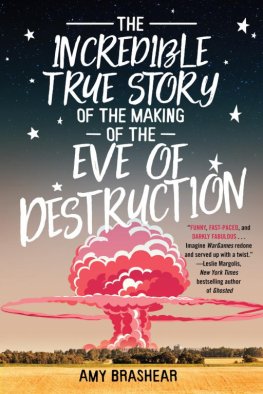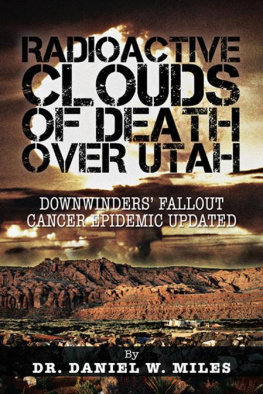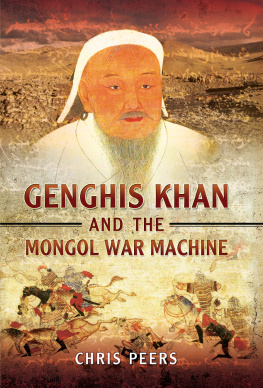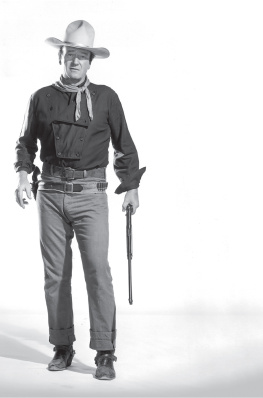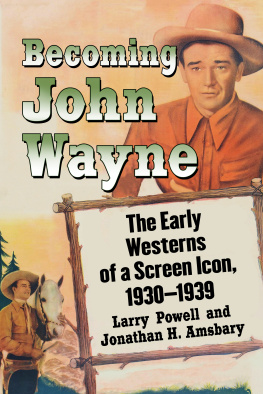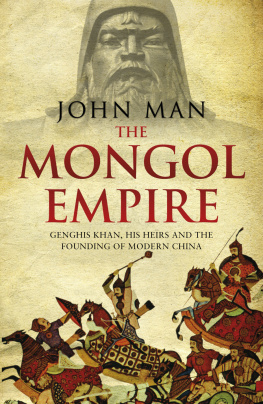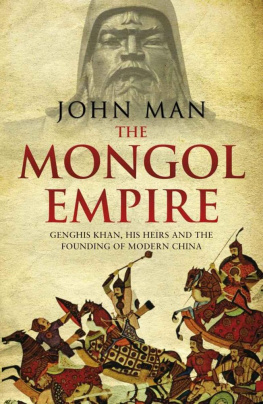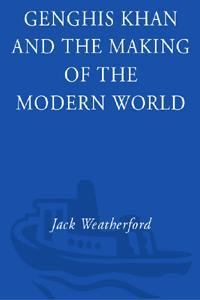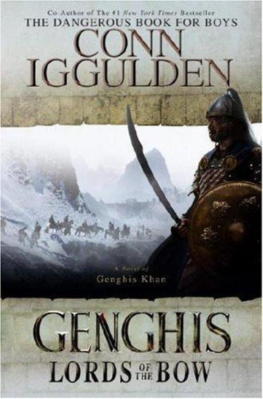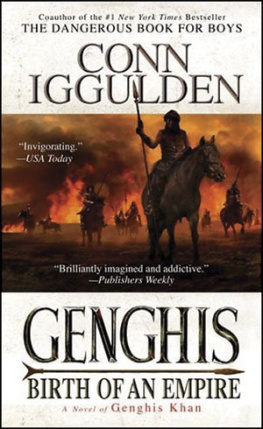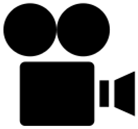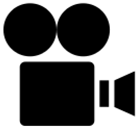J ust as there was a vast team that brought The Conqueror to the screen in 1956, many helped bring Killing John Wayne to the page. Thank you to my cousin David Rosfeld, who was the first to turn me on to the unbelievable Conqueror legend. Thank you to my rock star agent, Brenna English-Loeb, who championed the story to be told and guided the book throughout its publication journey. Thank you to publisher Rick Rinehart of Globe Pequot/Rowman & Littlefield for saying yes and sharing the story with the world as well as the brilliant team of editors who made the manuscript what it is. Thank you to Natalie Luvera, curator of the National Atomic Testing Museum, and researcher Bruce Church for contending with phone calls and e-mails and pointing me in the right direction for nuclear information.
Thank you to the fascinating collection of information preserved by the Atomic Heritage Foundation. Thank you to the work and passion of authors who have come before me, particularly Richard B. Jewell, author of the mesmerizing RKO Story, and Scott Eyman, author of John Wayne: The Life and Legend. Without your work, I would be lost. Thank you to the John Wayne Cancer Foundation for your help and all the great work that you continue to do.
Thank you to Turner Classic Movies for fielding a plethora of pesky inquiries about dates and data. Thank you to my partner, Mariana, for taking the first read and putting up with obsessive conversations about John Wayne and enduring his most awful, terrible, shockingly bad but oh-so-fun-to-watch movie over and over again.
Im not sure who to thank for my obsession with Howard Hughes, but Im sure the credit should go to the man himself, living such a fascinating and indescribable life that occupies most of my attention span.
Thank you to all of the movie buffs and cinephiles who kept the story alive all these years and who have taken an interest in this book!
And to anyone who worked on The Conqueror, whether as an actor, an extra, a caterer, or an extra pair of hands, thank you and condolences to you and your family.
Allyson, June. June Allyson. New York: Berkley Publishing Group, 1983.
American Cancer Society. https://www.cancer.org/, accessed 5 February 2020.
American Film Institute. https://www.afi.com/, accessed 19 November 2019.
Andersen, Christopher. A Star, Is A Star, Is A Star!: The Lives and Loves of Susan Hayward. New York: Doubleday, 1980.
Atomic Heritage Foundation. https://www.atomicheritage.org/history, accessed 31 March 2020.
Back, Steven, and Thomas Schatz. The Genius of the System: Hollywood Filmmaking in the Studio Era. Minneapolis: University of Minnesota Press, 1988.
Ball, Howard. Downwind From the Bomb. New York Times, February 9, 1986.
Barlett, Donald L., and James B. Steele. Howard Hughes: His Life and Madness. New York: WW Norton, 2004.
Bell, Chris. The Movie So Toxic It Killed John Wayne: The Tragedy of The Conqueror. Telegraph, January 17, 2017. https://www.telegraph.co.uk/films/0/movie-toxic-killed-john-wayne-tragedy-conqueror/.
Biskind, Peter. Easy Riders, Raging Bulls. New York: Simon & Schuster, 1998.
Broeske, Pat H., and Peter Harry Brown. Howard Hughes: The Untold Story. New York: Viking Press, 1996.
Carroll, Rory. Hollywood and the Downwinders Still Grapple with Nuclear Fallout. Guardian, June 6, 2015.
DArc, James. When Hollywood Came to Town: A History of Movie-making in Utah. Layton, UT: Gibbs Smith, 2010.
Doyle, Jack. Wayne for Camels, 1950s. The Pop History Dig, January 29, 2010, https://www.pophistorydig.com/topics/tag/john-wayne-camel-cigarettes/.
Dreyfuss, Randy, and Harry Medved. The Fifty Worst Films of All Time. Robbinsdale, MN: Fawcett Columbine Books, 1978.
Drosin, Michael. The Secret World of Howard Hughes. Macleans, February 4, 1985, 1633.
Editors of the Official John Wayne Magazine. Duke in His Own Words: John Waynes Life in Letters, Handwritten Notes and Never-Before-Seen Photos Curated from His Private Archive. New York: Media Lab Books, 2016.
Eliot, Marc. American Titan: Searching for John Wayne. New York: Dey Street Books, 2014.
Esson, Dylan. Did Dirty Harry Kill John Wayne? Media Sensationalism and the Filming of The Conqueror in the Wake of Atomic Testing. Utah Historical Quarterly (Summer 2003): 25065.
Esterow, Milton. R.K.O. Sale Takes a Dramatic Turn. New York Times (January 6, 1956).
Eyman, Scott. John Wayne: The Life and Legend. New York: Simon & Schuster, 2015.
Eyman, Scott. Print the Legend: The Life and Times of John Ford. New York: Simon & Schuster, 2015.
Film Reference. http://www.filmreference.com/encyclopedia/Romantic-Comedy-Yugoslavia/Star-System-THE-STUDIO-SYSTEM-AND-STARS.html.
Filmsite. https://www.filmsite.org/epicsfilms.html.
Fuller, John. The Day We Bombed Utah. New York: Signet, 1981.
Gallagher, Carole. American Ground Zero: The Secret Nuclear War. Cambridge, MA: MIT Press, 1993.
Gillians, Peter. Atomic Documents Debate Over Governments Utah Atom Tests. United Press International. August 5, 1984.
Goldman, Michael. John Wayne: The Genuine Article. San Rafael, CA: Insight Editions, 2013.
Gomery, Douglas. The Hollywood Studio System: A History. British Film Institute, 2005.
Hack, Richard. Hughes: The Private Diaries, Memos and Letters: The Definitive Biography of the First American Billionaire. Beverly Hills, CA: Phoenix Books, 2009.
Hollywood the Golden Years: The RKO Story. BBC-TV, 1987.
Howard Hughes Medical Institute. https://www.hhmi.org/about, accessed 29 March 2020.
Howard Hughes: The Man and the Madness. Directed by Nick Millard. Maljack Productions, 1993.
Internet Movie Database. https://www.imdb.com/title/tt0049092/.
Jackovich, Karen G., and Mark Sennet. The Children of John Wayne, Susan Hayward and Dick Powell Fear That Fallout Killed Their Parents. People (November 10, 1980).
Jewell, Richard B. RKO Radio Pictures: A Titan Is Born. Oakland: University of California Press, 2012.
Jewell, Richard B. The RKO Story. New York: Random House Value Publishing, 1985.
Jewell, Richard B. Slow Fade to Black: The Decline of RKO Radio Pictures. Oakland: University of California Press, 2016.
John Wayne. https://www.johnwayne.com/, accessed 29 March 2020.
John Wayne: American Legend. Directed by Kerry Jensen. A&E Network, 1998.
John Wayne Cancer Institute. https://www.saintjohnscancer.org/, accessed 29 March 2020.
Kelly, Cynthia C., and Richard Rhodes. Manhattan Project: The Birth of the Atomic Bomb in the Words of Its Creators, Eyewitnesses, and Historians. New York: Black Dog & Leventhal, 2009.
Kirkham, Pat, and Jennifer Bass. Saul Bass: A Life in Film and Design. London: Laurence King Publishing, 2011.
Landesman, Fred. The John Wayne Filmography. Jefferson, NC: McFarland Publishing, 2007.
Lasky, Betty. RKO: The Biggest Little Major of Them All. Warwick, NY: Roundtable Press, 1989.
Linet, Beverly. Susan Hayward: Portrait of a Survivor. New York: Atheneum, 1980.
Lippman, Thomas W. 50s Nuclear Tests Prove to Be a Time Bomb for Downwinders.


